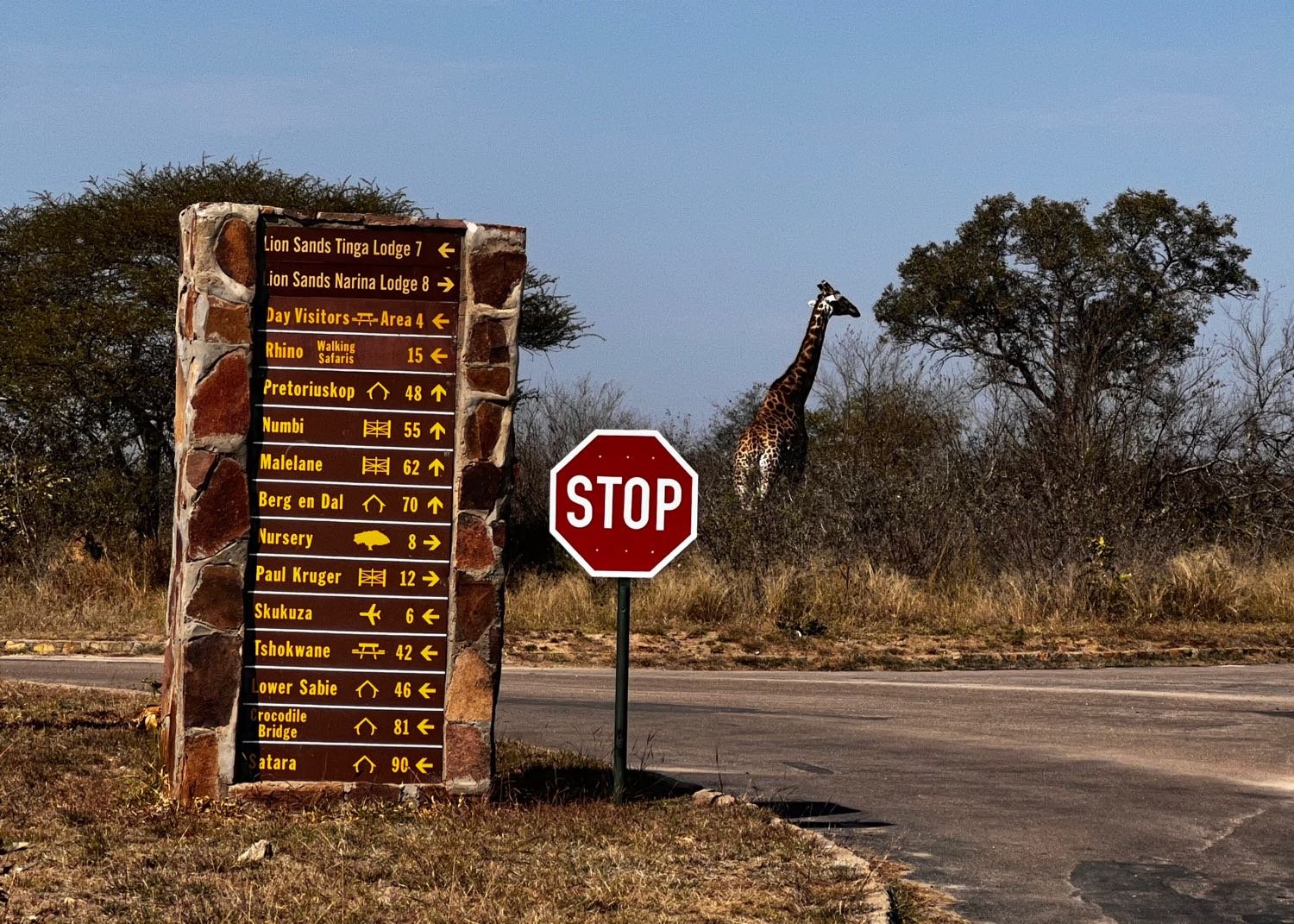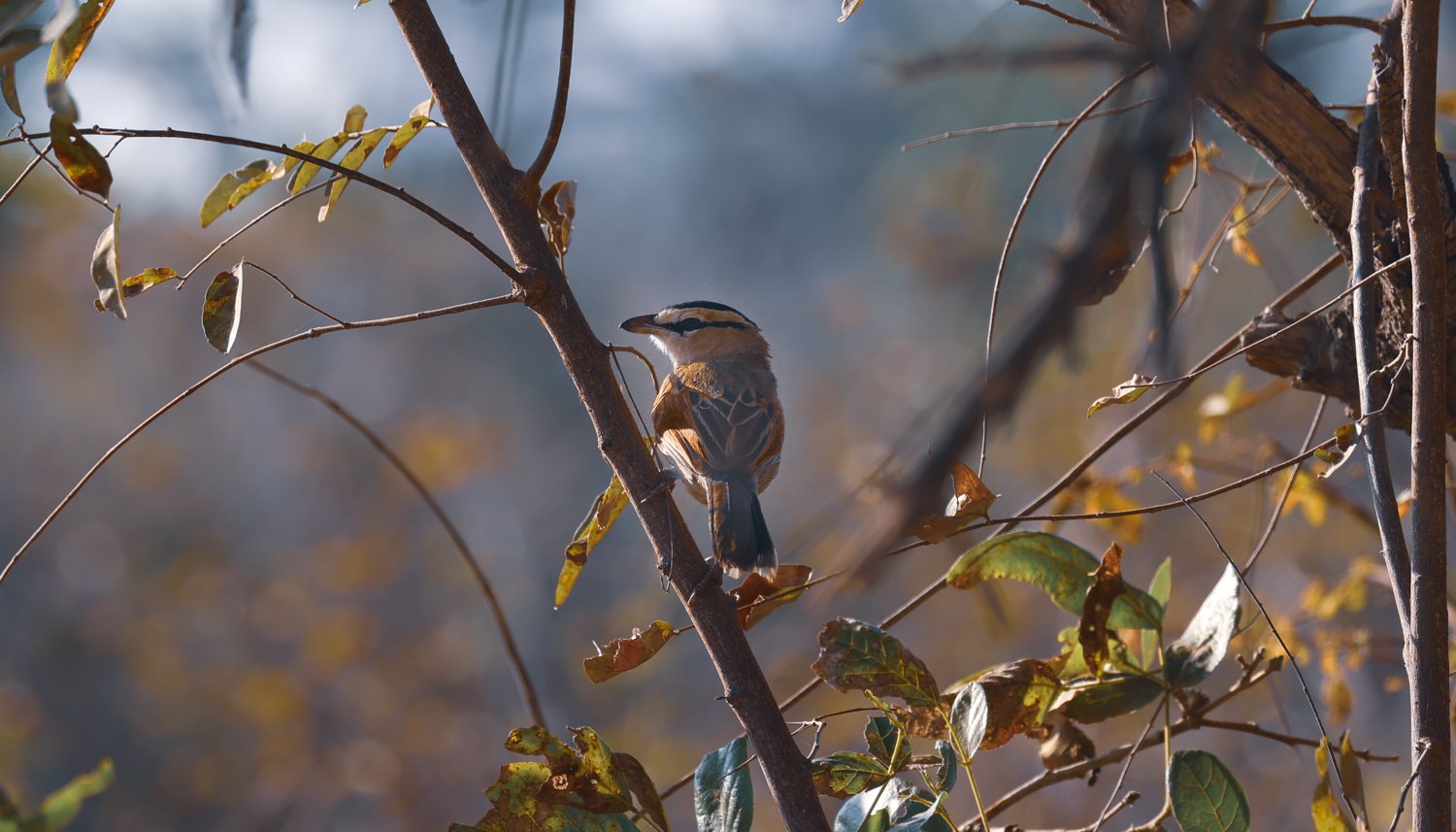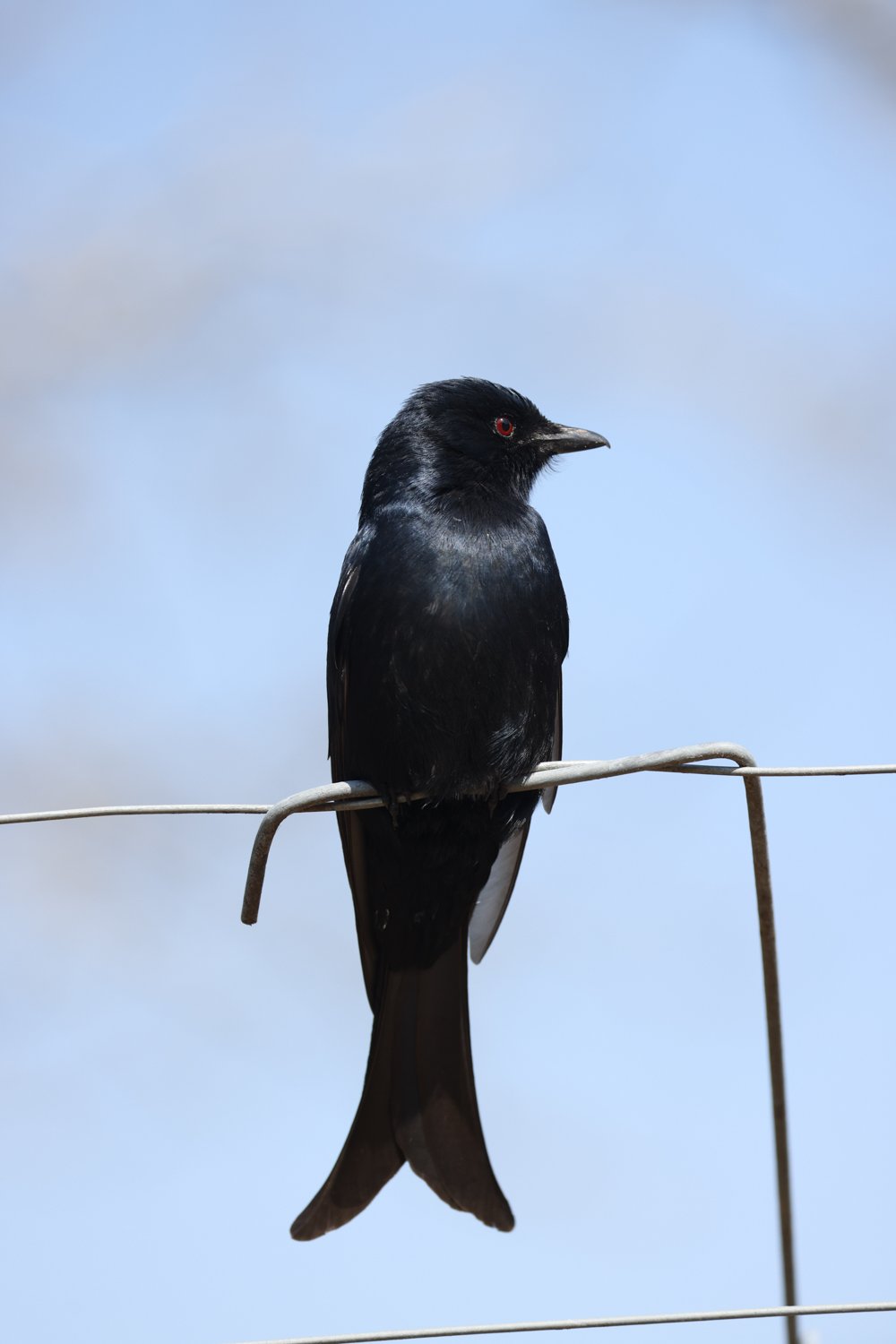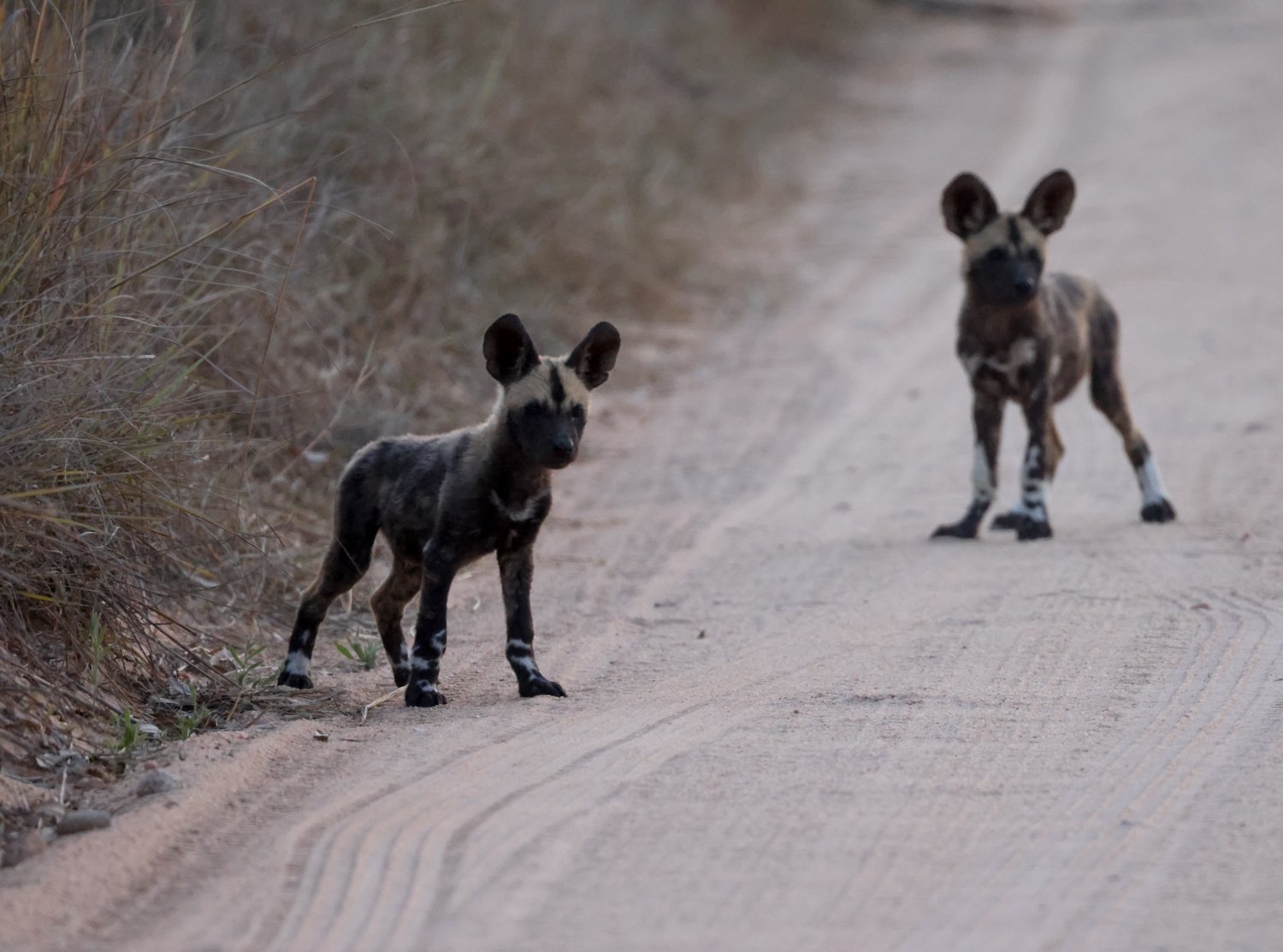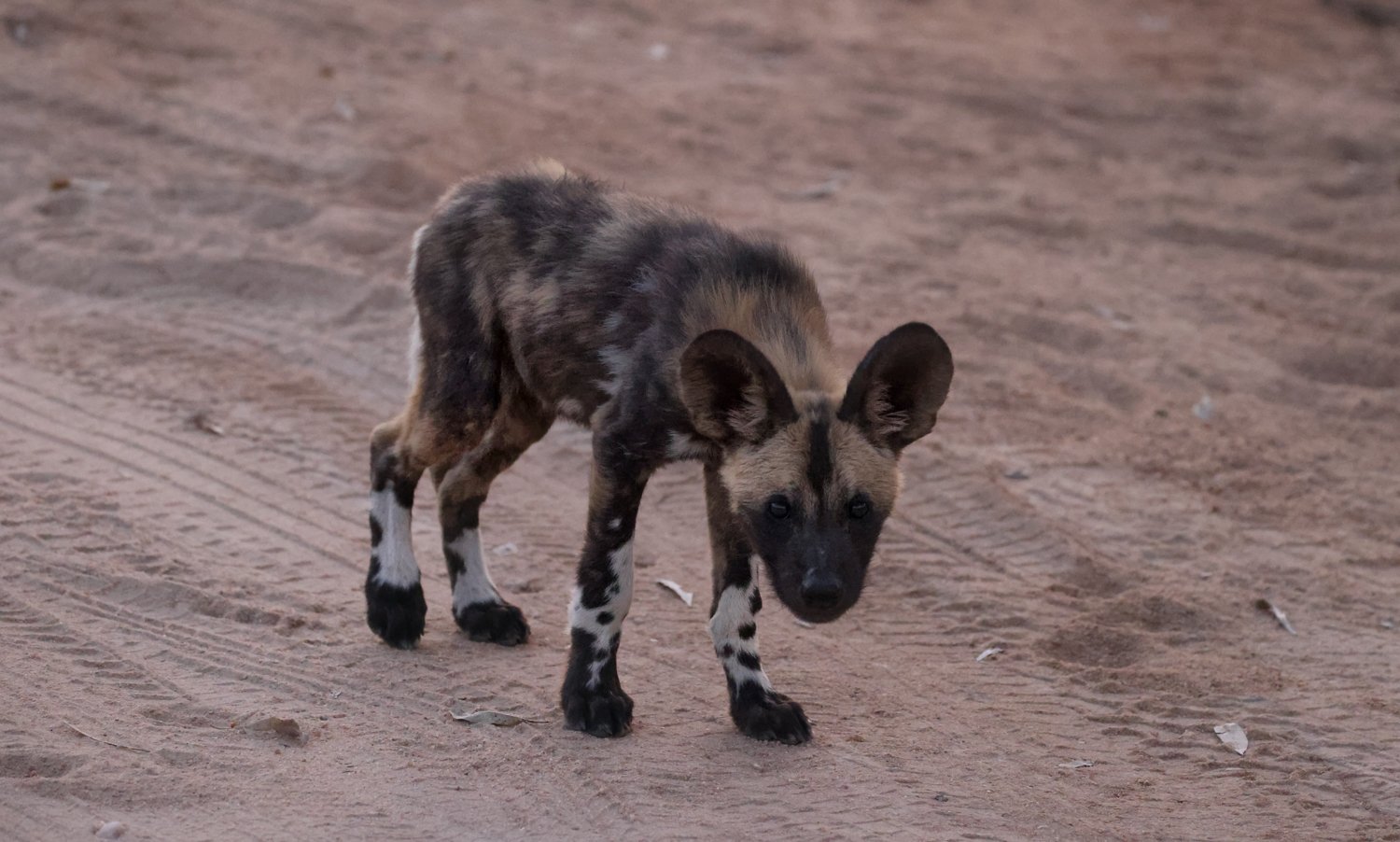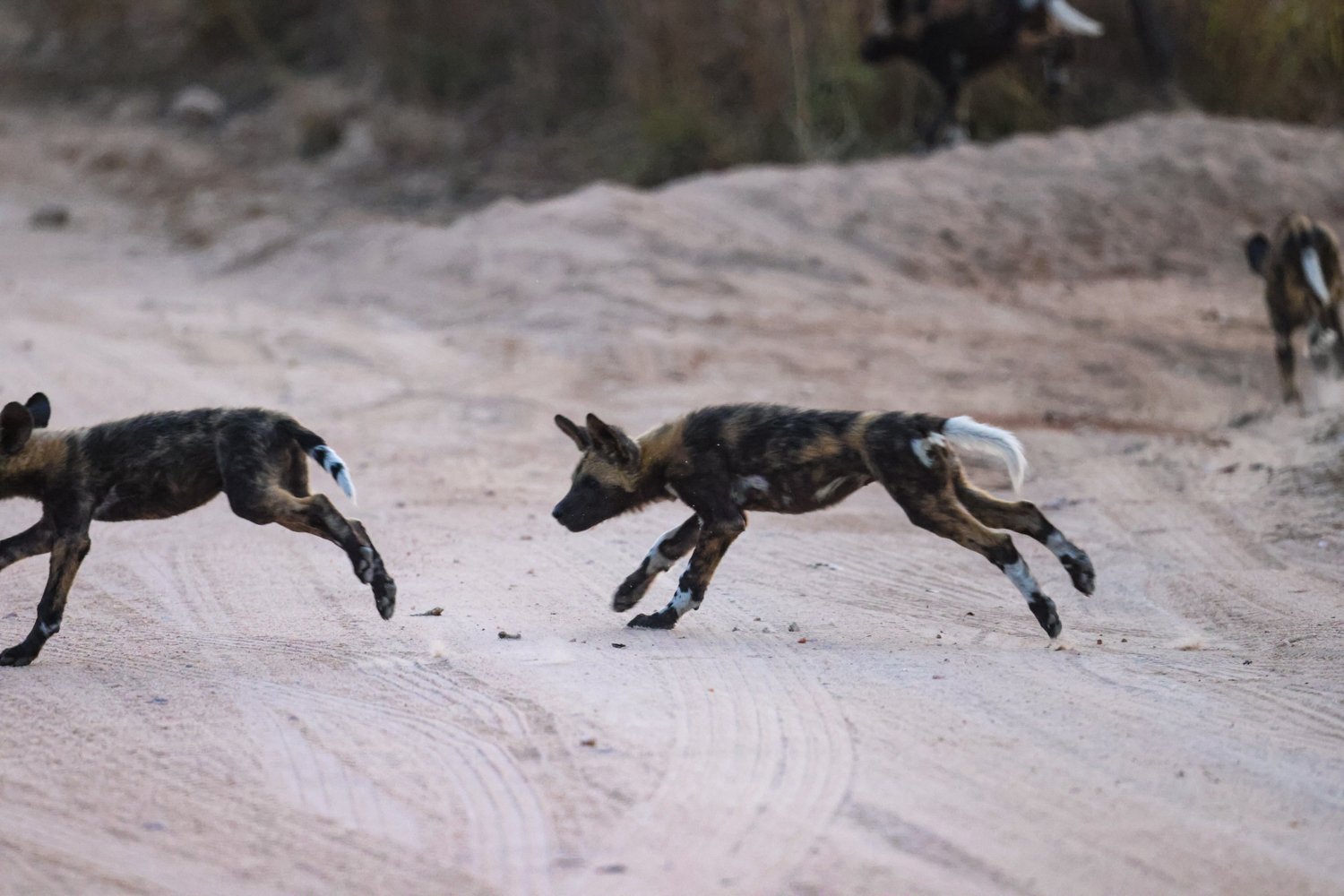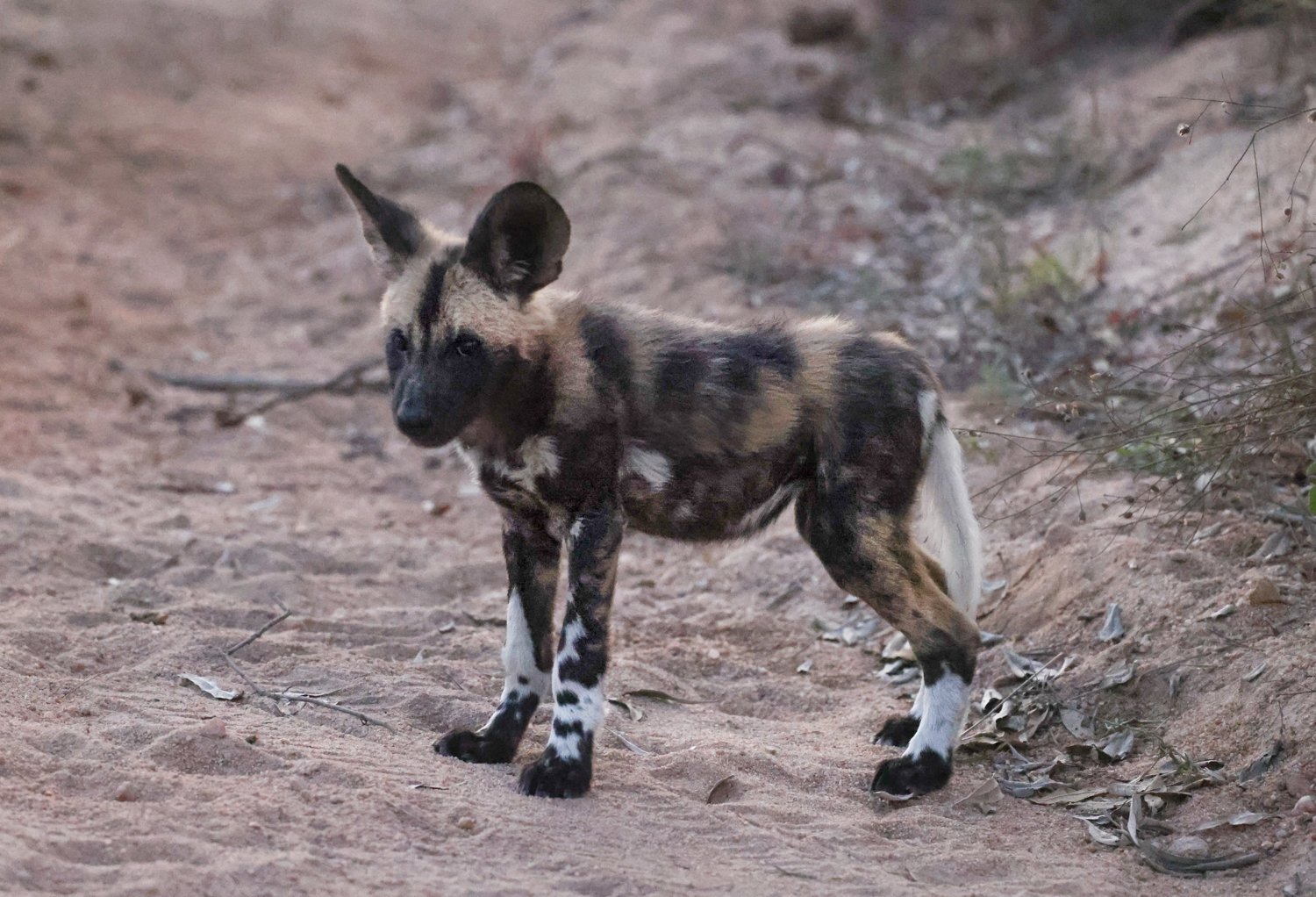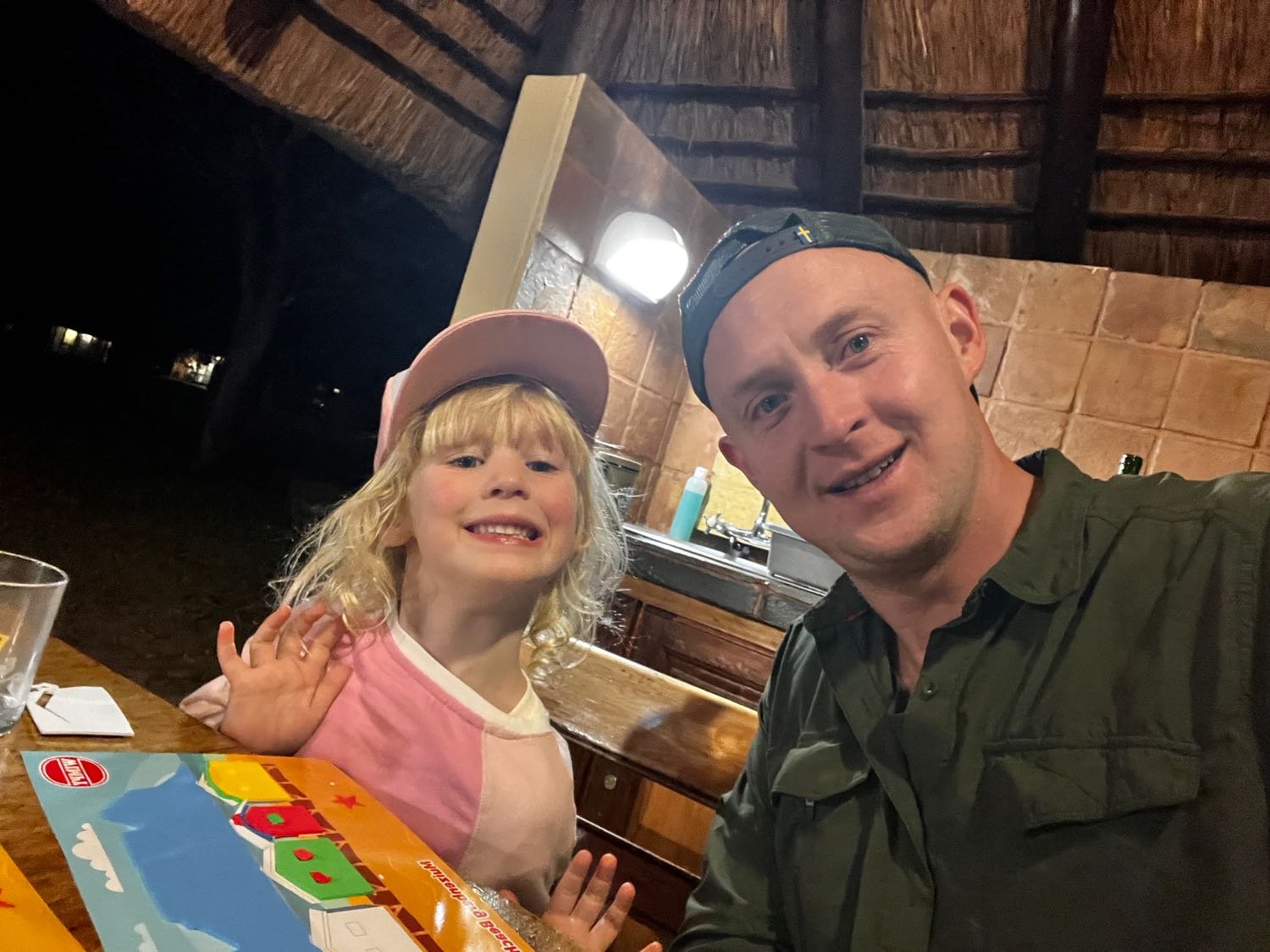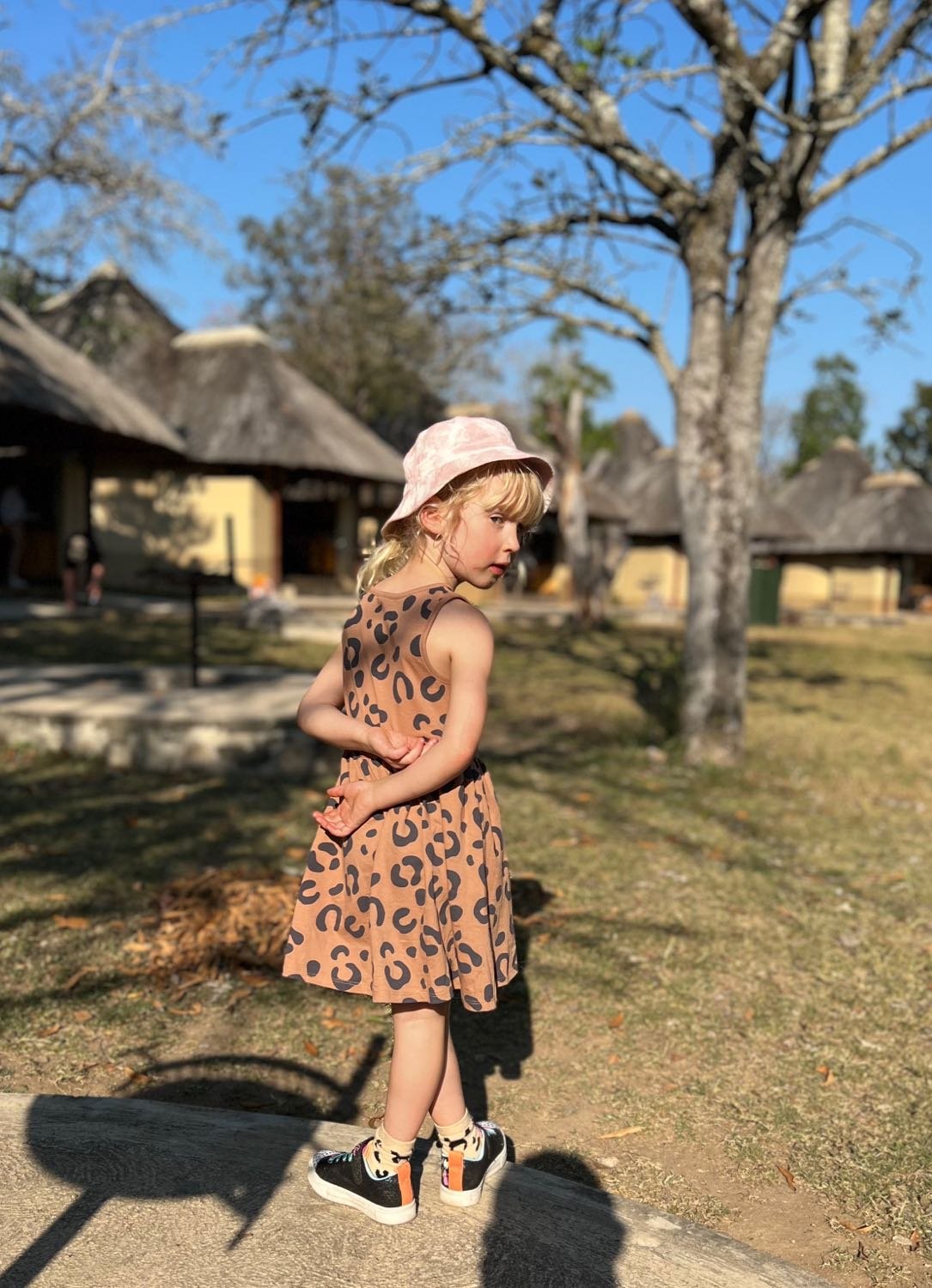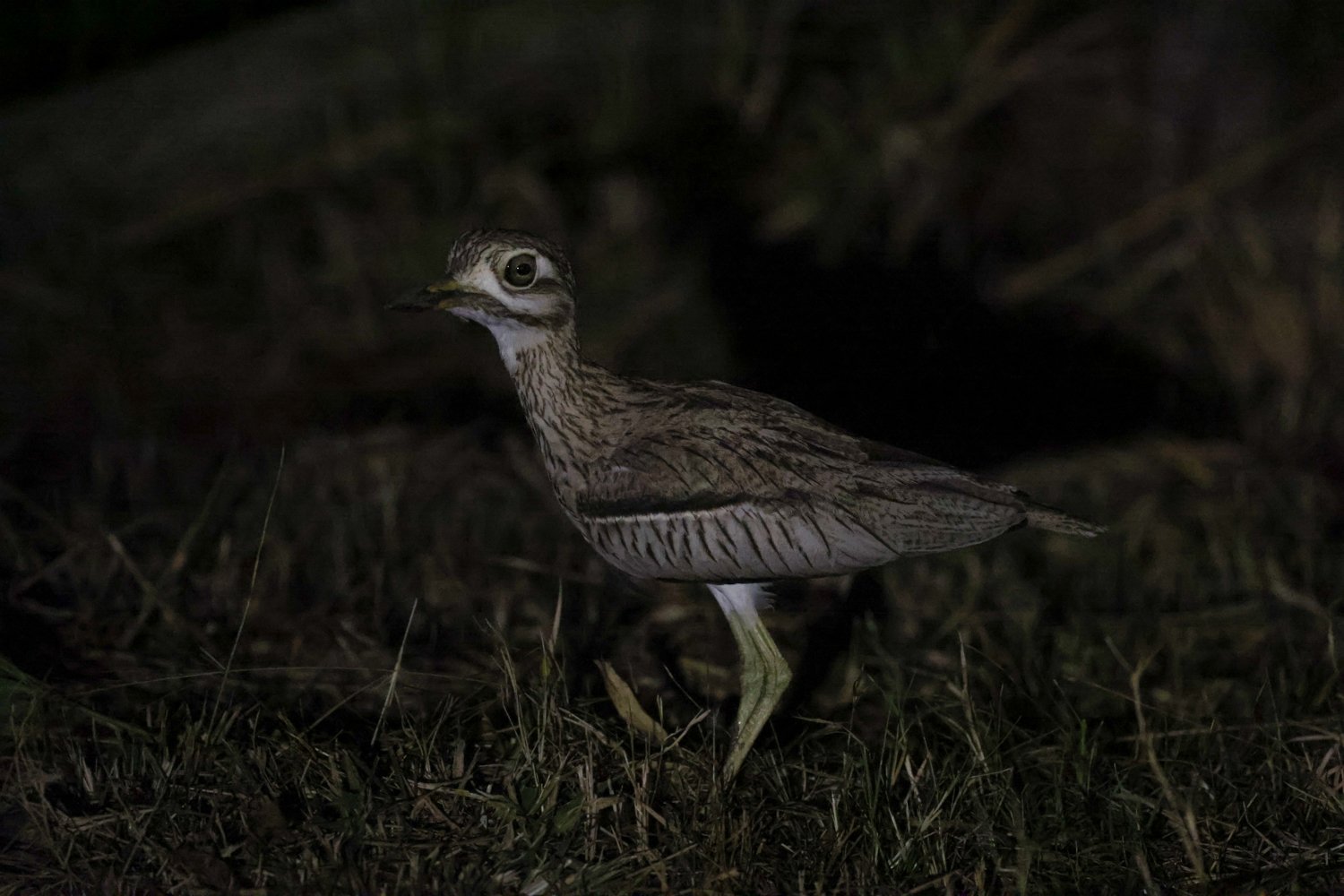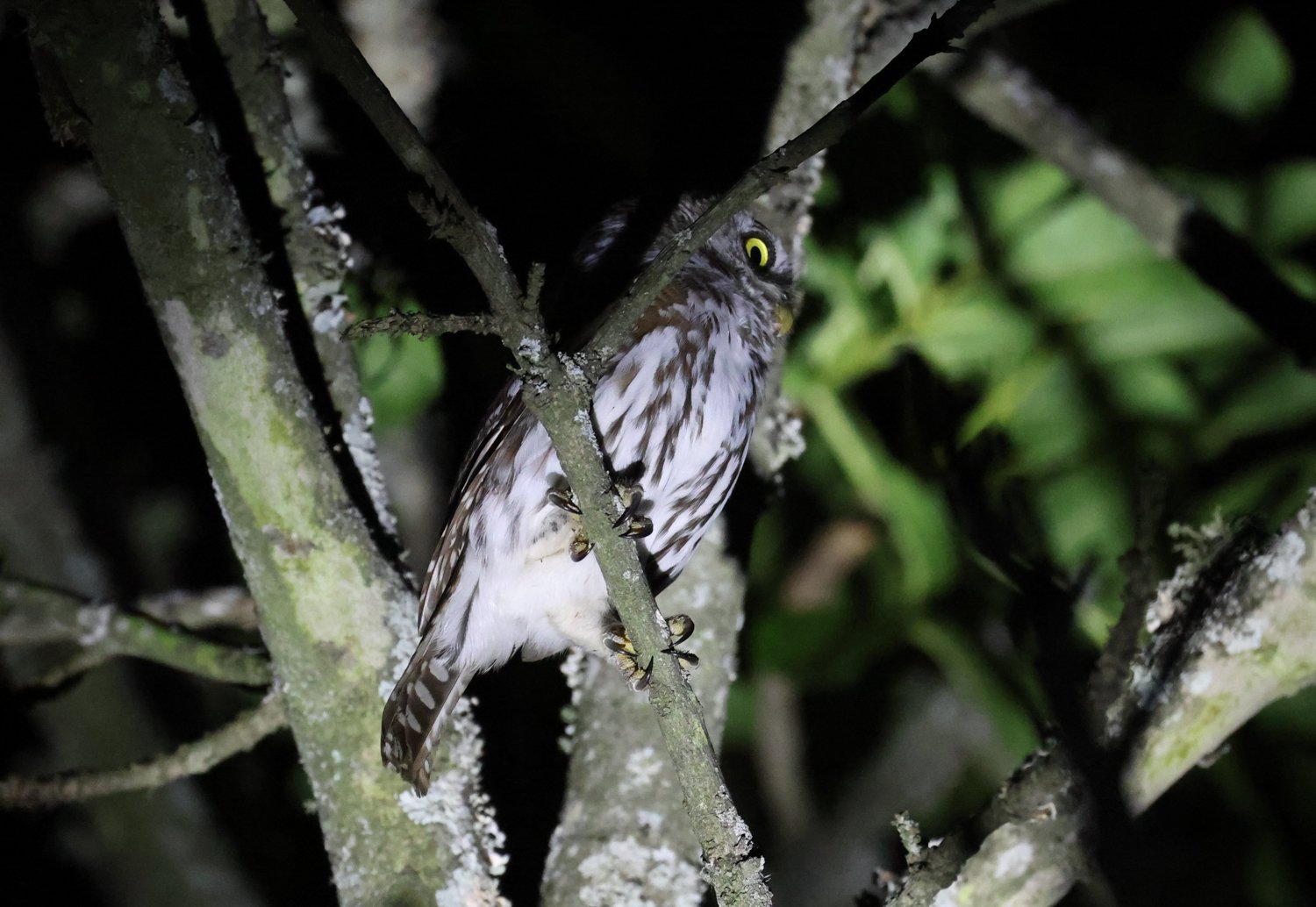Continuing my photoblog about my first-ever safari with my 4-year-old daughter. We left our base camp at Skukuza in Kruger national park after 3 days and headed west to Pretoriuskop, a camp I’ve stayed at before and always seems to have very different sightings. It has lower big game densities and more of the unusual species tend to be seen. This is mainly due to the habitat being slightly different due to the underlying geology. The sightings are a lot fewer and further in between, however, it did not disappoint. Straight out of the gates at Kruger we found this hyena running down the road at some speed. It seemed to have just been feeding on what was proposed to be a leopard kill further up the road (I was told by some passers by), but I am still baffled as to why it was running away from the kill. I will never know.
Firstly though I wanted to stop at Transport Dam, just to see the site of the legendary viral Youtube video ‘Battle at Kruger’ which was filmed in 2004. See that here. That was my main inspiration for coming to Kruger for the first time way back in 2010, so I have to check it out as I’ve only recently worked out where it was filmed. We arrived there and it was literally teaming with game, animals everywhere as far as the eye could see. You can see why lions chose this as a favoured hunting spot. There were herds of waterbuck, zebra, impala, hippo, elephant, and all manner of birds around. It is the type of place you could park up and sit for hours watching what goes by. In fact, there were a lot of people doing that and was probably the busiest waterhole I have been to in terms of other vehicles.
Transport Dam
Transport Dam
Anyway, we had to move on and check into Pretoriuskop Restcamp, where we had a great little welcome party of dwarf Mongooses outside our room. They kept me and my daughter entertained for a while as they constantly attacked each other in a playful way. They were very used to humans, which was nice because the ones in the wilderness are very shy and disappear down their holes really quickly.
Dwarf Mongoose
Dwarf Mongoose
The camp was also really alive with birds too and we got some good close-up views of a variety of beautiful species.
After a bit of a chill, we ventured out for the evening game drive. The weather was great and the sun was setting perfectly. Sightings were definitely much slower around here and my daughter fell asleep, but then a passing vehicle tipped me off of a hyena den where the cubs had emerged and were sitting waiting for their mother to come back. I found them quite quickly and decided to park up and watch them for a bit while my daughter slept. It was a great experience, as I could see how they behaved and their interactions with each other. They fight for hierarchy from birth and it was clear to see which was boss and got the most food; the smallest looked quite poorly. They were super inquisitive and came right up to my camera and tried to bite it to feel what it was. Way too close for my liking as they are known to have the strongest bite of all the mammals, so even a young cub would have a nasty grip. I decided to wake my daughter up at this point as it would be an absolute tragedy if she didn’t get to witness these hyena pups up close, so I did and she was blown away at what was lying next to her as she woke up.
Hyena Cubs
Hyena cubs
Hyena club close up
It was getting late now so we moved on. The road was just one big long road with no loops or side roads and I was just getting further and further away from camp and eventually became worried I was not going to get back in time for camp closing, so I turned around and headed back.
Sunset around Pretoriuskop
As I came over the top of a brow, I could see about 5 unusual animals at the bottom of the road, it was dark and dusty and I really struggled to see what it was. As I got closer the huge ears were a giveaway, wild dog!
African wild dog pups
As I got even closer I realised it was a pack of pups and there were no adults around. I could not believe my luck! It was too dark for any photos but me and my daughter just put them away and enjoyed the moment as they constantly chased each other through the bush. I made a note of the time and location and thought I really need to come back here. Skip forward 24 hours and I put us in the same place at the same time, which proved quite difficult with no GPS, but I believed in my tracking and just sat and waited. Then two vehicles came with two Spanish families and we got talking, they had also seen them at some point and were trying to relocate them. The problem is they left their engines running and were driving up and down. I politely told them that the best way is complete silence, as these pups were extremely skittish and wary without their parents there, so went into deep cover when anything remotely scary was around. The Spanish bought into my idea but quickly got bored and drove off. Literally, one minute later the pups came out for the evening. I could not believe what I was seeing. They were playing all around my car, and were nervously approaching me to see what I was; I could have been the first human they have ever seen.
African wild dog pups
They built up more and more trust as we sat still and silent, but they always approached with extreme caution. They had the most beautiful whites in their eyes as only puppies seem to get. In two days of watching them, I saw no sign of the parents, but they are well known to travel huge distances hunting, which could take days. I have no doubt they would have come back soon enough. An absolutely magical hour with one of the rarest creatures I have ever had the chance to see and photograph.
As with most wildlife journeys there is always a sad side to the story. We left Pretoriuskop and followed the Western edge of Kruger uo towards Paul Kruger gate and then cutting back in towards Skukuza. I saw a large kettle of vultures circling and lots perched in a tree. This often means there is something dead in the area. As I go closer, there were lots of armed rangers with huge guns, all on foot tracking something. I have no idea what it was but I am guessing it was a rhino poaching incident due to the amount of heavily armed rangers. For this very reason, poachers often try to poison the vultures so that they don’t give away their location, hence it being one of the leading reasons for the decline of vultures across Africa. More info here.

